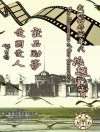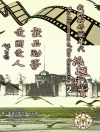In ‘Homes and Haunts of the Most Eminent British Poets’ by William Howitt, readers are taken on a literary journey through the homes and environments that inspired some of the greatest British poets. Howitt’s detailed descriptions and keen observations provide insight into the lives of these poets, shedding light on the connections between their physical surroundings and their creative works. The book is not only a travelogue of famous literary landmarks but also a study of the relationship between place and artistic expression in the Romantic period. Howitt’s prose is engaging and informative, making this book a valuable resource for scholars and poetry enthusiasts alike. William Howitt, a prominent English writer and historian, was well-known for his works on literature and social issues. His passion for the arts and his keen interest in the lives of poets drove him to create this comprehensive account of their homes and haunts. Howitt’s background in literature and his meticulous research are evident in the thoroughness of his narrative and the depth of his analysis. I highly recommend ‘Homes and Haunts of the Most Eminent British Poets’ to anyone interested in the intersection of literature and geography, or to those seeking a deeper understanding of the lives and environments of the great British poets. Howitt’s book offers a unique perspective on the creative process and the influence of place on artistic output, making it a must-read for lovers of poetry and literary history.
लेखक के बारे में
William Howitt (1792-1879) was a prolific English writer on history and other subjects. He married, in 1821, Mary Botham, who like himself was a Quaker and a poet. William and Mary Howitt collaborated throughout a long literary career, the first of their joint productions being The Forest Minstrels and other Poems (1821). The Howitts are remembered for their untiring efforts to provide wholesome and instructive literature. Howitt Primary Community School in Heanor, Derbyshire, is named after them.












